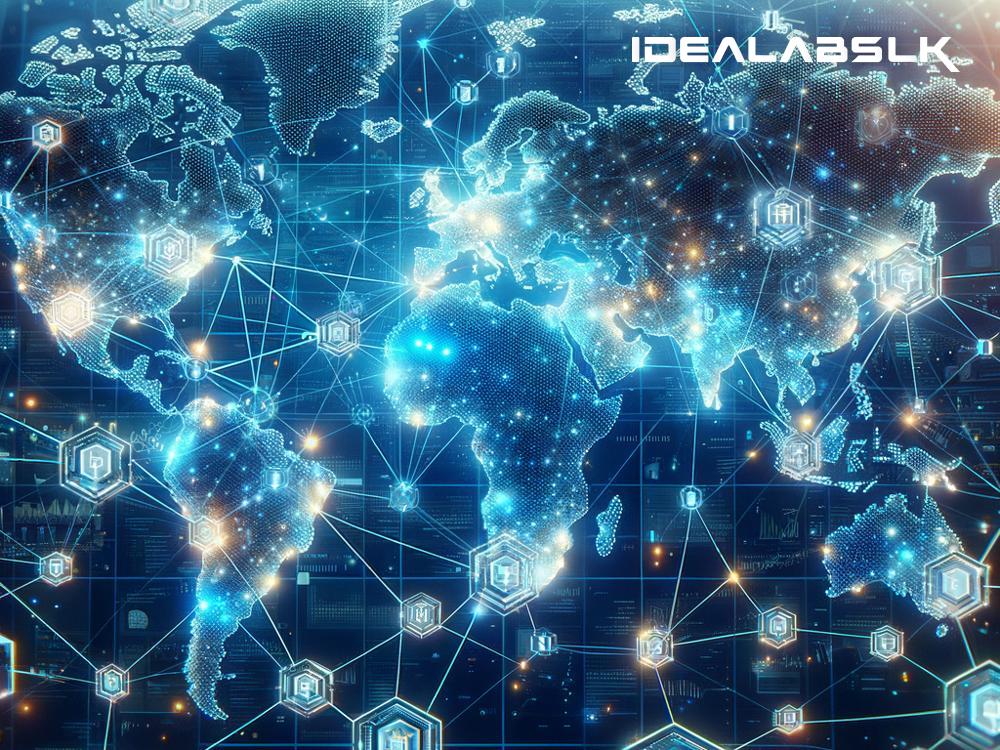The Future of Blockchain in Supply Chain Traceability
In the bustling world of buying and selling, knowing where your products come from and how they get to you is more important than ever. This is where blockchain technology and supply chain traceability come into play, promising a future where transparency and trust are at the forefront. Let's dive into how blockchain is transforming the supply chain and what this could mean for the future.
Understanding Blockchain in Simple Terms
Before we leap into its role in supply chains, let's briefly touch on what blockchain is. Imagine it as a digital ledger that anyone can check but no single person can cheat. This ledger records transactions, much like a traditional ledger, but does it across a network of computers. Once a record is made, it's nearly impossible to change. This creates a system of trust, transparency, and security that's appealing for many industries, especially those involving the supply chain.
The Current State: Supply Chain Challenges
Today's supply chains are complicated. Products often travel a global journey from raw materials to the finished goods in your hands, passing through numerous checkpoints and hands along the way. This complex process is ripe for miscommunication, errors, and even unethical practices, making it hard for companies to ensure the integrity of their products. Consumers, on the other hand, increasingly demand transparency concerning the sourcing and the ethical implications of their purchases. This is where blockchain comes in.
Blockchain to the Rescue
Blockchain technology promises to revolutionize supply chain traceability by offering a new level of transparency and trust. How does it do this? Every step of a product’s journey can be recorded on the blockchain, from the harvesting of raw materials to the manufacturing process, all the way to its delivery to the consumer. Each step is verified and added as a block to the chain, which is visible and immutable.
This means that anyone, whether it's the company or the end consumer, can trace back the steps of the product's journey. If you're buying a chocolate bar, for example, you can see where the cocoa beans were sourced from, where they were processed, and how they ended up in your hands. This level of traceability is unprecedented and has the power to impact greatly.
The Future Looks Bright
The integration of blockchain into supply chains is just getting started. Here's how it might shape the future:
-
Enhanced Transparency: With complete traceability, companies can no longer hide unethical practices. This pushes for more ethical sourcing and production standards, reflecting better on companies that uphold these values.
-
Increased Efficiency: Blockchain can streamline supply chains by reducing the need for paperwork and manual checks. It can automate and secure processes, making the entire chain more efficient.
-
Greater Consumer Trust: When consumers can see the journey of their product, their trust in the brand increases. This can lead to better brand loyalty and a preference for brands that offer this level of transparency.
-
Better Compliance: Blockchain can help companies ensure and prove compliance with regulations, reducing the risk of fines and legal issues.
Potential Roadblocks
While the future of blockchain in supply chain traceability looks promising, there are challenges. These include the need for widespread adoption, concerns over data privacy, and the technical know-how required to implement such systems. Overcoming these obstacles will require collaboration across industries and continuous technological advancement.
Wrapping Up
The potential of blockchain in transforming supply chain traceability is immense. As we move towards a future where transparency and trust are key, blockchain stands out as a beacon of hope for an industry plagued by complexity and opacity. It's not just about making supply chains more efficient; it's about building a better world where consumers can trust the products they use daily.
As we continue to navigate this exciting journey, one thing is clear: the marriage between blockchain technology and supply chain traceality marks a new era of accountability and integrity in the way we produce and consume goods. The future is bright, and it's transparent.

